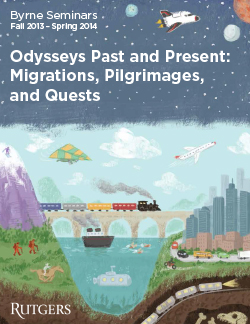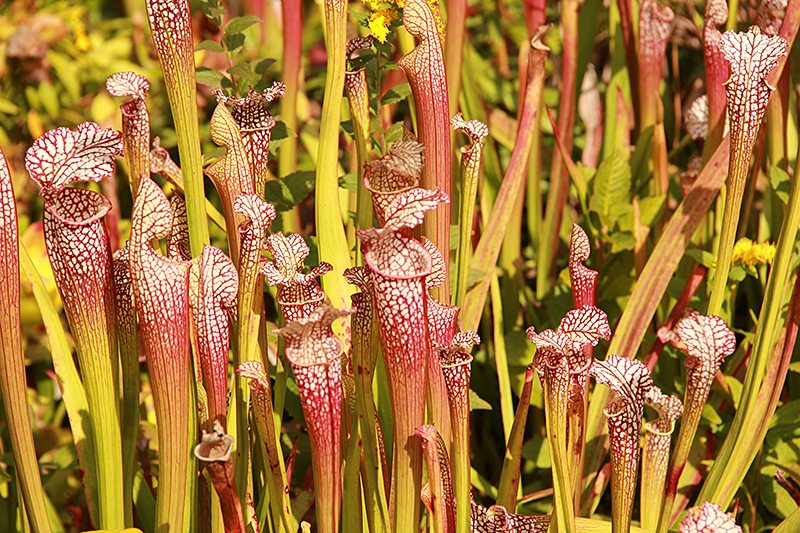 During Fall 2013 and Spring 2014, Byrne Seminars at Rutgers–small, one-credit courses limited to first-year students–will explore Odysseys Past and Present: Migrations, Pilgrimages, and Quests. One Byrne seminar, “Explore New Jersey Farms,” took the “Odyssey” theme seriously as 11 students visited five different farms in the vicinity of Rutgers, to deepen their “agricultural literacy.”
During Fall 2013 and Spring 2014, Byrne Seminars at Rutgers–small, one-credit courses limited to first-year students–will explore Odysseys Past and Present: Migrations, Pilgrimages, and Quests. One Byrne seminar, “Explore New Jersey Farms,” took the “Odyssey” theme seriously as 11 students visited five different farms in the vicinity of Rutgers, to deepen their “agricultural literacy.”
Led by Holly Nelson of the Department of Landscape Architecture, the odyssey began on the George H. Cook Campus at the university’s own research farms, Rutgers Hort Farms 2 and 3, located along Ryders Lane, New Brunswick, where students explored the student organic farm. Tom Molnar, assistant professor in the Department of Plant Biology and Pathology, discussed Rutgers’ hazelnut-breeding program before handing the tour to James Murphy, specialist in turf management at Rutgers, who described turf research and its place within the state economy. Brad Hillman, professor in the Department of Plant Biology and Pathology and director, Cooperative Research, explained the role of Rutgers and the land-grant colleges within the national land-grant system.
The Byrnes “Explore New Jersey Farms” seminar sought to answer several questions, including “What is New Jersey agriculture and how does it differ from other places?” The class visited a sampling of central New Jersey farms: an animal farm (Cherry Grove of Princeton); a vegetable and flower CSA in Pennington (Honey Brook Farm, farmed by Rutgers graduates Jim Kinsel and Sherry Dudas); a plant nursery (Rare Find of Jackson); and a grain grower (Etsch Farm in Monroe)—all of them located in a suburban setting. The suburbs provide the farmers with both opportunities (customers) and, in some cases, constraints. It was interesting to see each farm’s reaction to create market share: CSAs receive financing from their shareholders in return for providing food; Rare Find Nursery sells its stock to visitors as well as by mail order; Cherry Grove sends its cheeses to upscale restaurants and grocery stores; Etsch’s customers are animals who eat their grain harvest. These farm “case study” visits proved to the students that New Jersey farmers are coping with their neighbors in creative ways and inviting them onto the farm.
Another question that the class sought to answer included, “What do these local farms provide to society beyond pastoral landscapes?” Students appreciated families picking crops together; they enjoyed walking around the farms on beautiful fall days; they understood that farms provide biodiversity as well as provide healthy, local food.
As student Madison Molner summarized, “New Jersey has quite a reputation across the country. People associate it with the Jersey Shore, Frank Sinatra, Bruce Springsteen, Atlantic City, diners, the HBO show The Sopranos, congestion, and the infamous turnpike. However, outsiders are normally surprised to hear that our nickname is ‘the Garden State,’ which frankly is our most important attribute: so keeping farmers present in this state is a must.”


